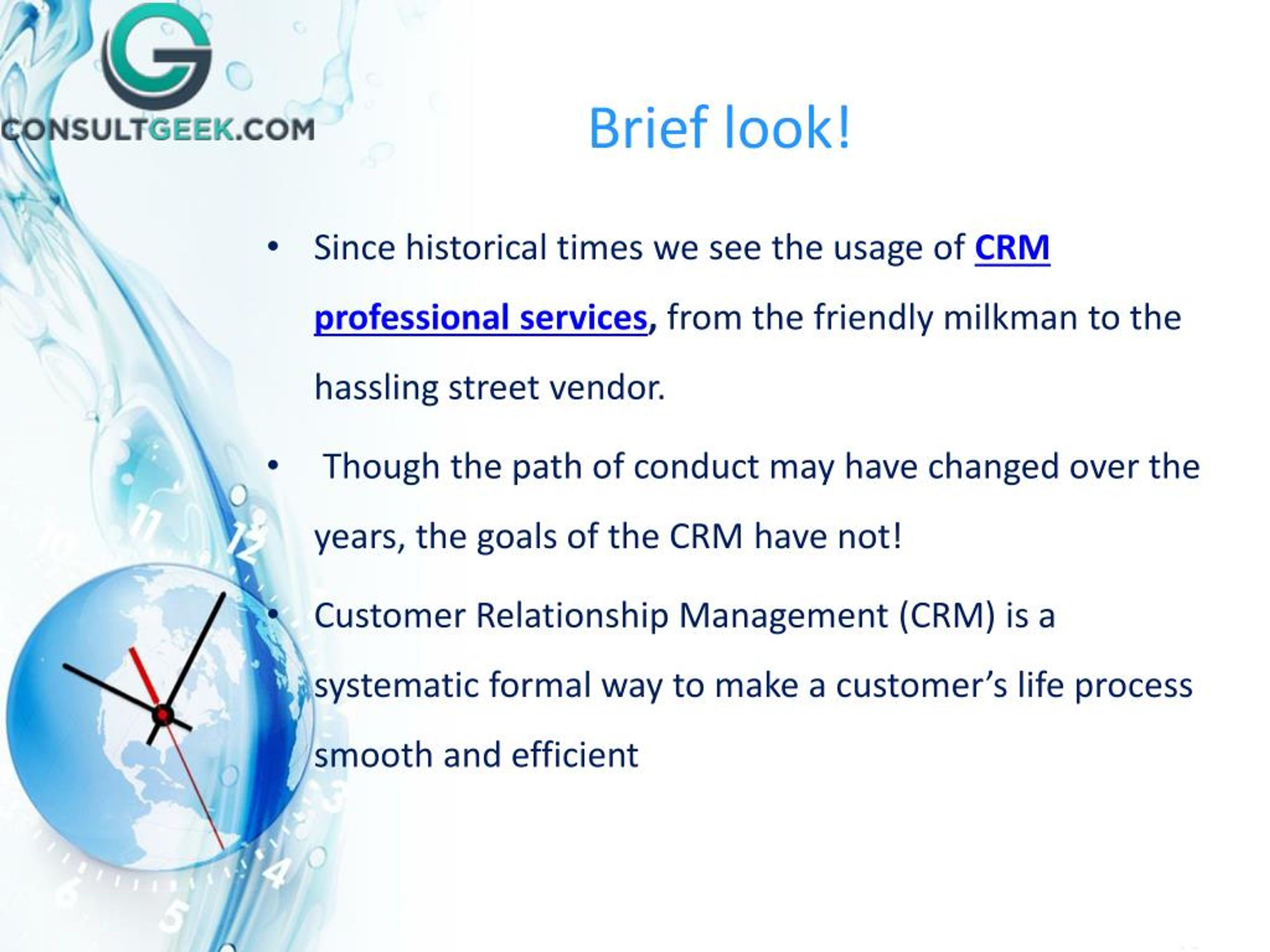CRM for professional services is a game-changer, providing firms with the tools to manage client relationships, streamline projects, and maximize resources. In this comprehensive guide, we delve into the challenges faced by professional services firms, the key features of a CRM system tailored to their needs, and the transformative benefits it can bring.
By implementing a CRM system, professional services firms can unlock a wealth of opportunities to enhance client satisfaction, boost revenue growth, and achieve operational excellence. Join us as we explore the best practices for implementing CRM, emerging trends shaping the industry, and real-world examples of firms that have harnessed its power.
CRM Market Overview for Professional Services

The CRM market for professional services is experiencing significant growth, driven by the increasing need for firms to manage client relationships effectively. According to a recent study by Gartner, the CRM market for professional services is expected to reach $12.2 billion by 2027, growing at a compound annual growth rate (CAGR) of 10.5%.
Professional services firms face unique challenges in managing client relationships. These challenges include:
- The need to track and manage complex client interactions across multiple touchpoints
- The need to build and maintain strong relationships with key clients
- The need to measure and improve client satisfaction
CRM systems can help professional services firms overcome these challenges by providing a centralized platform for managing client data, tracking interactions, and measuring client satisfaction. CRM systems can also help firms to automate marketing and sales processes, which can free up time for relationship-building activities.
Key Features of CRM for Professional Services
.png#keepProtocol)
CRM systems for professional services firms offer a comprehensive suite of features tailored to the unique needs of this industry. These features empower firms to enhance client management, streamline project tracking, and optimize resource utilization, ultimately driving business growth and profitability.
Client Management
- Centralized Client Database:Store and manage all client information, including contact details, project history, communication logs, and billing data, in a single, easily accessible location.
- Lead Management:Capture and qualify leads from various channels, track their progress through the sales pipeline, and nurture them with personalized communication.
- Client Relationship Management:Build and maintain strong relationships with clients through personalized communication, automated follow-ups, and tailored marketing campaigns.
Project Tracking
- Project Management:Create, track, and manage projects from initiation to completion, including timelines, budgets, tasks, and resource allocation.
- Collaboration Tools:Facilitate seamless collaboration among team members, clients, and stakeholders through shared documents, real-time updates, and online discussions.
- Project Analytics:Gain insights into project performance, identify bottlenecks, and optimize processes using robust reporting and analytics capabilities.
Resource Utilization
- Resource Management:Track and manage employee availability, skills, and workload to ensure optimal utilization and prevent overbooking.
- Capacity Planning:Forecast resource needs based on project demand and availability, allowing firms to proactively plan and allocate resources effectively.
- Time Tracking:Accurately track employee time spent on projects, tasks, and client interactions for accurate billing and resource allocation.
Benefits of CRM for Professional Services
CRM systems offer a wide range of benefits for professional services firms, including:
Improved client satisfaction: By providing a centralized platform for managing client interactions, CRM systems can help firms track client preferences, resolve issues quickly, and deliver personalized services. This leads to increased client satisfaction and loyalty.
Increased revenue growth: CRM systems can help firms identify and target new clients, track sales pipelines, and close deals more efficiently. By automating tasks and providing insights into client behavior, CRM systems can help firms increase their revenue growth.
Improved operational efficiency: CRM systems can help firms streamline their operations by automating tasks, reducing manual errors, and improving communication between teams. This can lead to significant cost savings and increased efficiency.
Case Studies
Numerous professional services firms have experienced significant benefits from implementing CRM systems. For example, a recent study by Salesforce found that firms that use CRM systems are 40% more likely to achieve their sales targets and 25% more likely to increase their profit margins.
Another study by Forrester Research found that firms that use CRM systems are able to reduce their sales cycle time by 18% and increase their close rates by 15%.
Best Practices for Implementing CRM in Professional Services

Implementing a CRM system in a professional services firm requires a strategic approach that ensures successful adoption and effective utilization. Here are some best practices to guide you through the process:
It’s essential to involve key stakeholders, including leadership, sales, marketing, and operations teams, to gather their input and ensure alignment with business objectives.
Data Management
Maintaining clean and accurate data is crucial for the success of any CRM implementation. Establish clear data governance policies and processes to ensure data integrity and consistency.
- Implement data validation and standardization rules to ensure data quality.
- Regularly review and cleanse data to remove duplicates and outdated information.
- Establish a process for data backup and recovery to protect against data loss.
User Adoption, Crm for professional services
User adoption is critical for CRM success. Provide comprehensive training and support to help users understand the system’s capabilities and benefits.
- Identify and address potential resistance to change by communicating the value of the CRM system.
- Create user-friendly interfaces and workflows to enhance user experience.
- Offer ongoing support and training to ensure users can maximize the system’s functionality.
Ongoing Training
CRM systems are constantly evolving, so it’s essential to provide ongoing training to keep users up-to-date on new features and best practices.
- Conduct regular training sessions to introduce new functionalities and address user questions.
- Provide access to online resources, such as user guides and tutorials.
- Encourage users to share their knowledge and best practices with colleagues.
Integration
Integrating CRM with other business systems, such as accounting, project management, and marketing automation, can streamline processes and improve data flow.
- Identify the systems that need to be integrated and determine the best approach for each integration.
- Use APIs or third-party integration tools to connect the systems seamlessly.
- Test the integrations thoroughly to ensure data accuracy and system performance.
Emerging Trends in CRM for Professional Services
The CRM landscape is constantly evolving, and professional services firms need to stay abreast of the latest trends to remain competitive. Emerging technologies such as artificial intelligence (AI), automation, and data analytics are transforming the way that CRM systems are used, and firms that embrace these trends will be well-positioned for success.
Artificial Intelligence
AI is already being used in CRM systems to automate tasks such as lead generation, lead qualification, and customer segmentation. In the future, AI will play an even greater role in CRM, helping firms to:
- Personalize customer interactions
- Predict customer behavior
- Identify new sales opportunities
- Automate complex processes
Automation
Automation is another key trend in CRM for professional services firms. Automation can help firms to streamline their workflows, reduce costs, and improve efficiency. Some of the tasks that can be automated include:
- Marketing campaigns
- Sales processes
- Customer service
- Billing and invoicing
Data Analytics
Data analytics is essential for professional services firms to understand their customers and make informed decisions. CRM systems can collect and analyze a wealth of data, including:
- Customer demographics
- Customer behavior
- Sales data
- Marketing data
By analyzing this data, firms can gain insights into their customers’ needs and preferences. This information can then be used to improve marketing campaigns, sales processes, and customer service.
The Future of CRM for Professional Services Firms
The future of CRM for professional services firms is bright. As emerging technologies continue to develop, CRM systems will become even more powerful and sophisticated. Firms that embrace these trends will be well-positioned to succeed in the competitive global marketplace.
Last Point

CRM for professional services is not merely a software solution; it’s a strategic investment that empowers firms to deliver exceptional client experiences, optimize operations, and stay ahead in an increasingly competitive market. As the industry continues to evolve, CRM will remain a vital tool for professional services firms seeking to thrive in the digital age.
Questions Often Asked: Crm For Professional Services
What are the key benefits of CRM for professional services firms?
CRM systems help firms centralize client data, improve communication, streamline project management, enhance resource utilization, and increase revenue generation.
How can CRM improve client satisfaction in professional services?
CRM enables firms to track client interactions, identify their needs, and provide personalized services, leading to increased satisfaction and loyalty.
What are the best practices for implementing CRM in professional services?
Best practices include defining clear goals, selecting the right system, ensuring data quality, promoting user adoption, and integrating CRM with other business systems.